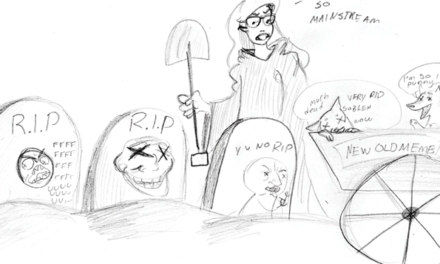Why are we attracted to certain people? Because they’re adjective, adjective, adjective, you know, the kinds of people you want to spend your time with. I don’t know what that means.
The use of adjectives to describe our love interests is an example of how we fail to properly engage with the people we love. Call your crushes enthusiastic, smart, charming, aggressive, athletic or daring. Call them whatever you want. Adjectives are both too temporary and too vague to convey a deep level of affection.
What is a deep level of affection? It’s love. But, of course, what is love? In terms of the drawbacks of adjectives, a quote from writer Haruki Murakami fits, “When you fall in love, the natural thing to do is give yourself to it. That’s what I think. It’s just a form of sincerity.”
Sincerity is genuine, but adjectives are temporary. Pretty people grow old. Nice people turn mean. To sincerely describe the people we love, we need words that do more than praise temporary states of being. Sure, a person could be pretty or nice his or her whole life, at least relative to certain people, but appearances change with time.
The vague conundrum with adjectives is that they’re such general words that they could apply to anyone you would ever date. Of course you want a person who is smart, attractive and fun. But how is he/she smart? How is he/she pretty? What’s so fun about him/her that you can’t get from anyone else? I’m no Yoda – I’m just a regular guy chasing the dream – and when girls ask me why I like them I tend to choke up, fumble over my words, and settle on a terrible response, such as, “punctual.”
If not with adjectives, how can we describe the people we love?
Murakami again offers insight, “Maybe it’s just hiding somewhere. Or gone on a trip to come home. But falling in love is always a pretty crazy thing. It might appear out of the blue and just grab you. Who knows – maybe even tomorrow.”
Love is not something you can see coming. It’s a crazy feeling that pops up one day, seizes you and refuses to let you go. And love is not obvious. It’s this hiding, mysterious thing that might come along soon or in a long time, but you don’t get to choose, which is why you must choose the words that you use to describe love wisely. Mysterious, hidden things rarely garner easy descriptions.
I spy with my little eye … No. The approach to a proper description must start deeper than sight. If the intention is to engage deeper with people then we need to dig deeper than obvious perceptions, such as physical appearance and basic behaviors in order to get to know people well enough to figure out if they’re worthy of a two-months’ salary.
Beware the metaphor. For example: His/ her eyes sparkle like the stars. That metaphor comes across as cliché to some and romantic to others, and you can say that line to any boy/ girl. Context matters, but if the metaphor can be applied to anyone, it’s just like an adjective. It’s too general. We’re searching for a type of description that can be both personal and permanent. Original, fitting metaphors can prove that you know a person, as a well-conceived metaphor not only demonstrates a deep understanding of a person, but your ability to translate that understanding into a phrase that is unique to the individual. Cultivating romantic metaphors requires an intimate kind of attention to all aspects of a person’s being.
While a step above adjectives, metaphors fall short because they equate people to other things. That’s a beautiful skill and I love a great metaphor, but it strikes me that if we’re truly in love we should be able to describe the person without temporary or vague words and without having to think of that person in terms of something else, because we love the person and not that something else.
At the moment, I am not in love, but it would behoove this argument to provide a taste of what I wish we could all do. Something like: I like him/her because he/she makes me want to own up to my past.
Nothing complicated, but the line is personal and timeless. I’m the guy who never knew how to really care for a girl until he fell in love too young, got his heart broken and ensued to never know how to care about a girl until, well, maybe now. It’s a big deal for a girl to make me want to own up to how callous I’ve been towards romance. That callousness is something that actually happened, so it can never go away, and so my desire to open up about my past is both a permanent piece of my history and a sincere compliment to the girl, because not one person has made me want to dig into the blood and guts of the past four years of my dating life.
All I’m saying is stop being lazy. Adjectives can apply to anyone. Metaphors can fail to do the people you love proper justice. Just think of a sentence – something short, sweet and to the point – that resonates with something deep inside you and presents itself only because of him/her, and tell him/her that. Tell him/her that he/she is someone who seemingly popped up out of the blue and who you’ve never met before, but in your own words.
Alex Rosenfeld is a College senior from Allentown, Pennsylvania.
The Emory Wheel was founded in 1919 and is currently the only independent, student-run newspaper of Emory University. The Wheel publishes weekly on Wednesdays during the academic year, except during University holidays and scheduled publication intermissions.
The Wheel is financially and editorially independent from the University. All of its content is generated by the Wheel’s more than 100 student staff members and contributing writers, and its printing costs are covered by profits from self-generated advertising sales.






